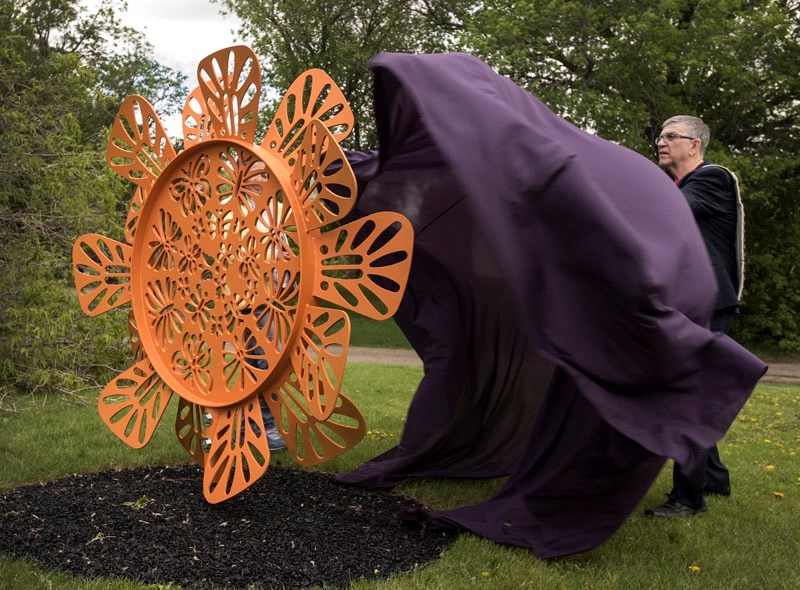The long walk of the founders continues.
Shawna Randolph, spokesperson for the St. Albert Arts and Heritage Foundation, said Wednesday the group is “quite pleased” council decided to stay the course in budget talks Monday, declining to defund Phase III of the historical interpretive Founders' Walk.
“We are very much looking forward to working with the City of St. Albert on this project once again as we did with the other two phases, so that residents can learn more about the significant role the Sturgeon River has played in St. Albert’s history,” she wrote in an email.
Coun. Shelley Biermanski pitched the $263,700 reduction to the city’s capital budget during the final budget debate meeting Nov. 25 but lost the vote 1-6.
Biermanski said she doesn’t see the walk’s destination. The wording of the motion would have seen the project shelved until council is presented with a detailed design and cost estimate for the coming work.
“This ask is not clear to me at all in any means of where the design is actually going,” she said. “I’d like to see greater clarity when asking to fund a project.”
Coun. Mike Killick said, to the contrary, he was satisfied with the level of detail provided by the Community Services department.
“It clearly identifies in red box on those slides what is remaining,” he said. “I think we have the information we need. We’ve been redesigning this for almost 10 years. Now is the time to move forward with it.”
He added this work would add accessibility to the city’s trail network.
Founders' Walk Phase III was designed to include “cultural and historical interpretive features celebrating St. Albert’s rich history,” according to a city document.
Phase I starts at the downtown clock tower, runs along Perron Street and up Mission Hill. Phase II extended the trail from Mission Hill to the grain elevators along St. Vital Avenue.
Phase III was intended to connect the Grain Elevator Park to the Perron Street bridge along existing trails on both the north and south banks of the Sturgeon River prior to a significant re-scaling.
The council of the day approved funding for design and engagement (feedback-seeking) in 2016 but has seen delays since. The design work was halted at 60 per cent completion in 2021 and the project was reimagined with installations installed ad hoc where other work was already taking place, according to community services manager Elizabeth Wilke, who explained that’s a more affordable and sustainable approach.
“When is work planned for the Children’s Bridge, at Lions Park?” she said. “We’d come up with a cultural interpretation related to that.”
She said any “nodes” previously identified that had issues with proximity to the river or floodplain have been removed from the plan.
When constructed, new nodes will feature improved accessibility with widened pathways and other features. They will also incorporate Indigenous perspectives, stories and contributions with input from the city’s Indigenous relations co-ordinator.




